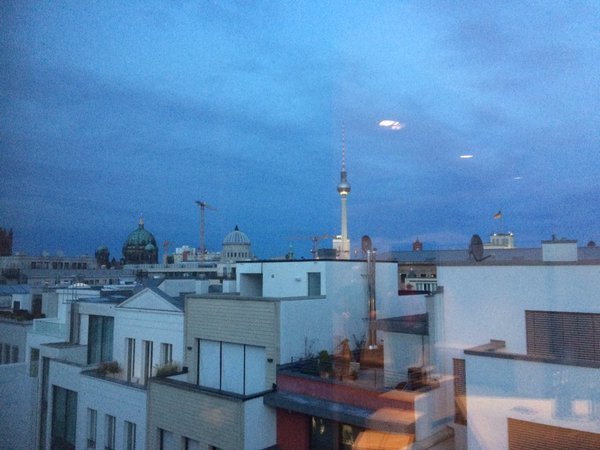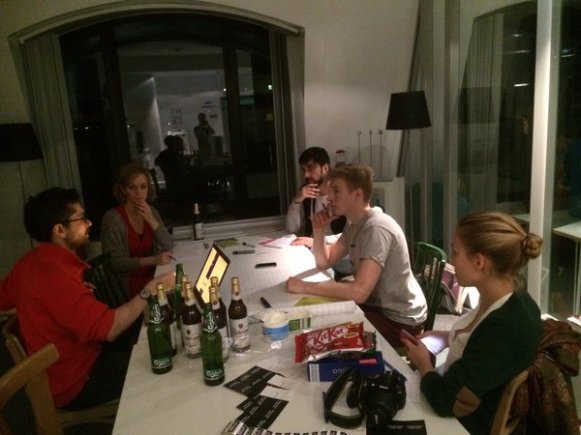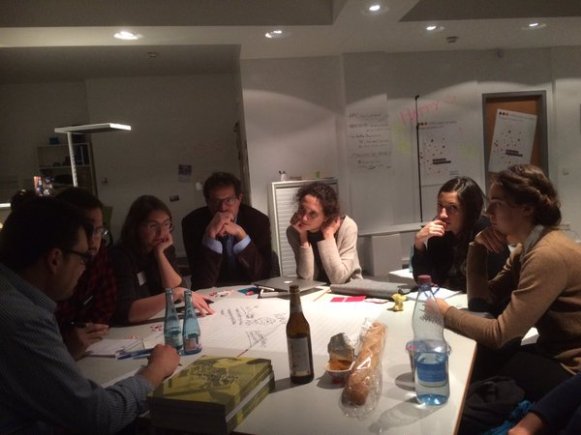
OpenCon comes to Berlin!
A few weeks ago, OpenCon hit Brussels in a tidal wave of awesomeness, and led me to thinking about how open access and all that jazz aren’t really about just making papers openly available, but in making the statement that knowledge is something that everyone has equal rights to.
Open Science isn’t just a way of practising science by making your research outputs available; it’s a mindset, a way of thinking, a way of conducting the entire process of your research.
It also made me fully aware of the ‘open community’, and despite the fact that there’s a global network of ‘open champions’ out there, the vast majority of academics, or those involved in academia, are still very poorly informed about the importance of open research on the fundamental level of how to practice it, but also on a deeper level of the importance of it. To me, this highlights the importance of developing active networks and communities that aren’t just discussing the current issues of research and publishing, but also working to improve them.

To that end, I was pleased to help organise an OpenCon satellite event after the main show in Berlin, along with Julien Colomb, a neurobiology post-doc and CEO of Drososhare, and Peter Grabitz, an intern with the WHO and medical student. The event was kindly sponsored by ScienceOpen, an open publishing network, and in the end had around 30 attendees, which was nice! A good number for more detailed engagement.
The tweets from the event were storified by Celya Gruson-Daniel thankfully, and contain some nice snippets of the event. There are numerous great quotes and resources within, so really worth checking out!
We kicked things off with an introduction from the Humboldt Institute for Internet and Society (HIIG), an appropriate host with an incredible venue, who simply highlighted that science is trying to solve the needs of the future but stuck in the past.
Our keynote speaker was Prof. Andreas Degkwitz, Chief Librarian of the Humboldt University, who laid some truths bare about essentially how crap our current publishing system is, in that we pay $billions each year to prevent access to knowledge, and that current systems are really less to disrupt that than they are to add an extra cash lining to the pockets of profit-driven publishing companies.
This was it for the speaking part of the event! No-one likes to sit down and be talked at for hours about this stuff. We borrowed the idea from OpenCon to have the rest of the event in an ‘unconference’ style, by brainstorming major issues, or themed groups of issues, that we were all encountering at some point during our time as researchers, and what we could do to actively start combating them.
The three themes we identified were:
- How to be ‘open’ and maintain or build a reputation as a researcher;
- How to build active communities like OpenCon; and
- What can researchers do that publishers do, and how can we do it better!
I’ve got a video somewhere with all of the post-group discussion about the potential solutions we came up with, and will post it online soon.
I guess, if I have one take away point from all of this this for researchers, it’s to learn how to empower yourself to be the best you can for research. There are numerous issues with the current academic system, from gender inequality to large-scale fraud, and you can’t try to enact change for all of them. But what you should be aware of, and it’s what those in positions of power, or at least have the veil of power (like publishers..), don’t want you to know: you have the ability and strength to be an ‘open researcher’, and to help transform academia into a much more transparent and equal environment. All you have to do is do it.


0 thoughts on “OpenCon comes to Berlin!”